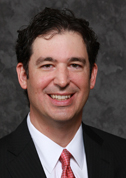© 2015 The Texas Lawbook.
By Brooks Igo
(March 25) – In an effort to boost its government investigation practice, Haynes and Boone recently hired the only attorney in Houston with the experience of working at both the U.S. attorney’s office and the U.S. Securities & Exchange Commission, according to firm leaders.
Steve Corso’s practice will focus on SEC defense, internal investigations and white collar criminal matters. He spent the past 11 years as an assistant U.S. attorney in Houston investigating and litigating white collar crime.
“Steve’s unique experience within both the Justice Department and the SEC has given him breadth and depth in the kinds of complex white-collar matters we are seeing with our current clients and across public companies generally,” Dallas partner Kit Addleman said in a statement.

In October 2011, Corso received the Gaston L. Gianni, Jr. Better Government Award from the Council of the Inspectors General on Integrity and Efficiency for his role in leading a team of federal agents and attorneys in a criminal investigation of a government contracting fraud in connection with procuring food for U.S. troops in Iraq and Kuwait.
His team’s work helped lead to criminal convictions and a $15 million settlement of the False Claims Act suit brought in parallel with the criminal case.
While an assistant U.S. attorney, Corso also served a 12-month assignment in the General Counsel’s Office of the Executive Office for United States Attorneys in Washington, D.C.
In a Q&A with The Texas Lawbook, Corso explains why he chose Haynes and Boone, how his experiences at the Justice Department and the SEC have shaped him as a lawyer and what types of cases the government is focusing on.
TLB: Why did you make the move to Haynes and Boone?
SC: Professionally and personally, I was ready to take the next step in my career and in my life. Haynes and Boone was an obvious choice. My DOJ and SEC background fits well with the needs of the firm’s national white-collar practice and the Houston office in particular. The firm is stable. It’s Texas-based and is here to stay in the Houston market and across Texas. I like the firm’s culture of camaraderie and cooperation among partners and practice groups.
It was difficult to leave my friends and colleagues in the U.S. Attorney’s Office and the work I was accustomed to. But it was an easy choice to come to Haynes and Boone.
TLB: How have your experiences as an assistant U.S. attorney and SEC attorney shaped you as a lawyer? How do you anticipate they will affect your private practice?
SC: As a prosecutor, I was always thinking how a given case and the issues and nuances within it would play out in court under the examination of the judge, jury and opposing counsel. So, one way being a prosecutor has shaped me is I’m able to make those judgments and move forward confidently. Another is that because of the courtroom experience I’ve accumulated, I’m comfortable with taking matters to trial when that’s appropriate and necessary. My SEC background shaped me by providing a lot of exposure to the federal securities laws and the many issues that companies, financial industry participants and investors deal with. And, as with being an assistant U.S. attorney, I have a feel for how securities regulators approach matters, what they are doing and how they are thinking.
Because of my background, I’m in a strong position in private practice to inform clients where we think the criminal and regulatory enforcement lines are, explain to clients where they stand in relation to those lines and advise them accordingly.
TLB: What are one or two of the most interesting cases you have worked on in the past year?
SC: I helped a foreign law enforcement entity gather evidence in a financial fraud and arrange transcribed witness testimony in the United States pursuant to a Mutual Legal Assistance Treaty request. They traveled a long way to the United States, but they and others involved in the proceedings were less than enthused about coming to Houston in the middle of the summer. So, we agreed to convene in New York City. We met them, sight unseen, in a hotel restaurant in Times Square. They spoke good but limited English. Nevertheless, we were able to discuss their case and help them with the evidence we obtained. It was interesting to see them at work and to observe that the challenges that arise in these cases are similar all over. You can make a friend for life sometimes, and the next time I travel to their country, they’ll give inside tips on things to do, places to eat, and so forth.
TLB: What are the trends in your government investigations practice that you expect you and your clients will be addressing in 2015?
SC: The government has a renewed focus on investigating and prosecuting individuals, especially high-level corporate personnel. It [the government] has heard and felt criticism over settling recently with large entities without holding individuals to account for the underlying conduct. White-collar cases will continue to be a priority. Offices across the country are looking to bring cases more like ones traditionally brought in places like New York or Washington.
Cyber issues will loom large. And the government will continue to build on its use of parallel proceedings. Thus, even when clients think they are facing only civil liability, they should be cognizant that criminal prosecutors may be reviewing their matters. So, it will be important to have the counsel of attorneys with criminal law backgrounds.
© 2015 The Texas Lawbook. Content of The Texas Lawbook is controlled and protected by specific licensing agreements with our subscribers and under federal copyright laws. Any distribution of this content without the consent of The Texas Lawbook is prohibited.
If you see any inaccuracy in any article in The Texas Lawbook, please contact us. Our goal is content that is 100% true and accurate. Thank you.
